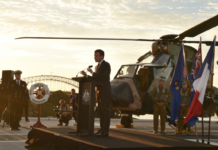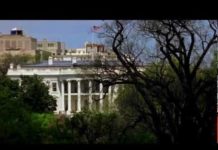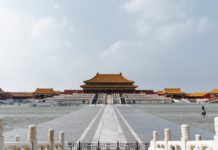US President Donald Trump has alluded on several occasions to a US foreign policy based on what he calls ‘principled realism’. But what does this mean? The emphasis appears to be on ‘realism’, which is generally understood as the pursuit of national interest through the exercise of all forms of power but mainly military and economic power. Realism puts the emphasis on national sovereignty and an international order where multilateralism and the exercise of diplomacy in global fora come second to the interests of the state.
As a theory of international relations, realism and its neo variants concentrate on the struggle for power in an anarchical international arena where there cannot be an overarching authority or form of global government. As a result, states are forced to advance their national interests because not doing so would give advantage to their rival(s) in ways that may be fatal to one’s own survival. Trump’s ‘America First’ campaign pledge reflects this thinking and is translating into a foreign policy where gratuitous international cooperation is seen as detrimental to US interests.
In practical foreign policy terms, realism can take many forms and, in most cases, it still seeks to preserve some form of international order or balance, whether globally or regionally. Henry Kissinger, the one-time Secretary of State to Richard Nixon, exercised notions of balance of power through his RealPolitik where he often played a US rival against another US rival, in an attempt to advance through the middle. Equilibrium, however, was still critical to one’s own advance. Although unconfirmed, Kissinger is said to be advising President Trump on foreign policy.
This is where the qualifier ‘principled’ rises in importance. Realism is often discredited by critics for being a heartless foreign policy, one which disregards principles or values in the pursuit of crude national power. By adding this qualifier, Trump seems to be sending a message to both domestic and international audiences that despite his emphasis on a realist international order the US will not pursue national interest foolishly and with a complete disregard for the integrity and sovereignty of other nations.
On the other hand, he is also implying that he is ready to put values aside if the realist nature of the challenge demands it. The expression ‘principled realism’ is undoubtedly very ambiguous and difficult to decipher. Yet its repeated use in Trump’s speeches suggests an attempt to distinguish his administration from both the adventurism of President Bush Jr’s neo-conservative administration and the idealist yet often paralysing profile of President Obama’s foreign policy team.
Theory and practice are two different things, however, and it is not at all clear that President Trump himself understands the theory or that he is following it through in practice. A close look at his administration’s foreign policy record to date raises many doubts. On the one hand, he has moved from overtly offending and threatening North Korea’s Supreme Leader Kim Jong-un to meeting him in person and making a deal with him, effectively legitimising North Korea’s status as a nuclear power.
Meanwhile, he has withdrawn the US from the nuclear deal that the great powers and Iran signed in 2015, he has antagonised his European allies and threatened to abandon NATO, and met with Russia’s President Vladimir Putin despite an ongoing investigation over a possible major Russian interference in the 2016 US national elections. He has also abandoned global agreements, such as the 2016 Paris Climate Agreement, threatened to withdraw from the World Trade Organisation and initiated a trade war with China of unknown consequences.
According to numerous analysts, this is evidence that Trump’s foreign policy is more guided by his personal affinity to certain world leaders and his own personal values or ideas, than by a credible and well-crafted ‘principled realist’ strategy. At the same time, others see in his behaviour the reflection of a man whose main previous experience is in the field of real estate, where your goal is simply to achieve the best deal through tough negotiations, regardless of what this means for the other party.
‘Principled realism’ is likely to remain a very ambiguous concept yet it is precisely this ambiguity which makes it so novel and hard to interpret. Trump’s unpredictability makes it very difficult for his team of advisors to develop a very defined and clear foreign policy. It also makes it invariably complex for his adversaries to anticipate his next moves, allowing him to take the initiative and forcing them to react.




























